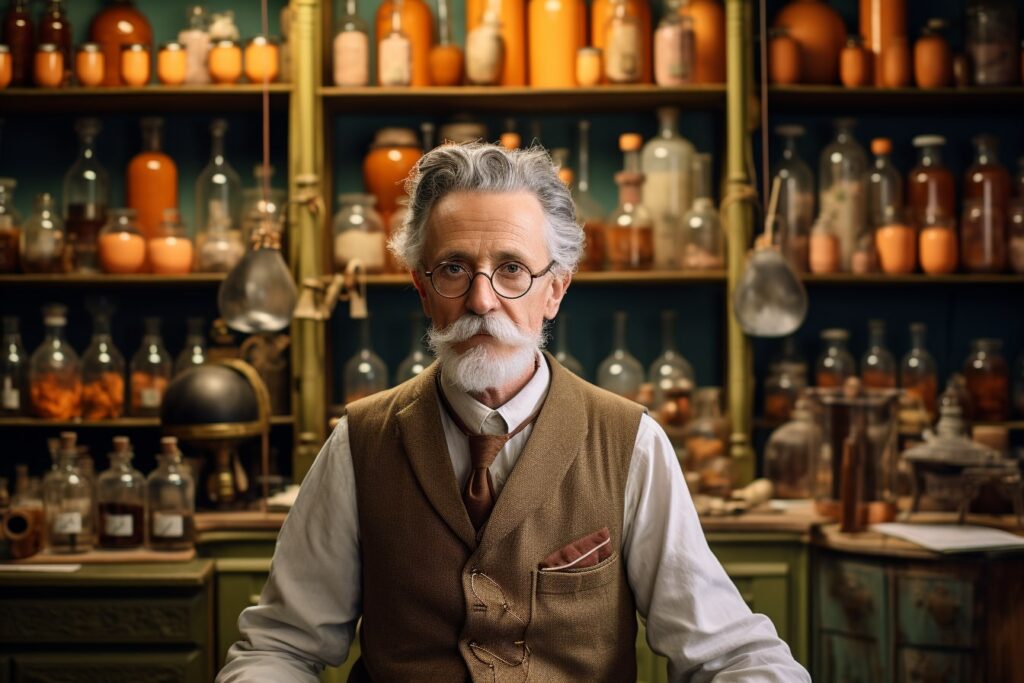This hex (tweet) circulated a bit over the last few weeks.
I don’t really have an “official” list of “personal foundational texts,” especially not books I reread, there are so many things to read, I tend to not reread anything. Except younger, where I reread Tintin and Spirou a few times.
In lieu of specific title, what I always come back to is a kind of healthy obsession for quirky scientists and brainy people in general. I loved the two bandes dessinées above, but my favourite characters weren’t the ones in the titles, they were Professeur Tournesol and the count, Pacôme de Champignac.
A couple of years ago, reading Back To The Victorian Future, I wrote this in Sentiers:
Finally, Morus also mentions Tesla as a variation on virtue, with “the inventor as an outsider who had no interest in the mundane world around him, a dreamer ‘who thinks too much’ and wanted ‘more than anything else to be left alone.’” And made me think of all the quirky and / or mad inventors I’ve loved in fiction, Professeur Tournesol, Pacôme de Champignac (and Zorglub), even Doctor Doom and a number of characters on this list of fictional scientists and engineers. I’ve always assumed I was recognizing fellow nerds, but now I’m wondering how it relates with these other archetypes.
Woven into the fabric of the story were assumptions about the relationship between personal virtue, technology and the road to a better future that were deeply ingrained in Victorian culture. For the Victorians, the future was — or could be — utopia, and individual personal virtue was instrumental in producing a collective virtuous future. […]
But Smiles was adamant that biographies of great men offered “illustrious examples of the power of self-help, of patient purpose, resolute working and steadfast integrity, issuing in the formation of truly noble and manly character.” […]
They demonstrated “that it is not the man of the greatest natural vigor and capacity who achieves the highest results, but he who employs his powers with the greatest industry and the most carefully disciplined skill — the skill that comes by labor, application and experience.” […]
“When we subscribe to this paradigm about how — and by whom — the future is made, we’re also relinquishing control over that future.”
I’d also add Sherlock Holmes and the more recent, very heavily inspired by Holmes, Aloysius Pendergast. Both detectives of sorts but with a very scientific mind and acerbic wit.
Curiosity, an eye for science, and a wide array of interests. The books they are featured in might not necessarily be a “personal canon,” but they definitely seem to have influenced me. Or of course, I was drawn to them because we “think the same way.”
The other oeuvre I immediately think of in this context, is all of William Gibson‘s writing. Here are two quotes from him, you’ll easily see the connection.
Some speculative writers are architects: they build orderly worlds. But Gibson has a collagist’s mind. He has depicted himself as “burrowing from surface to previously unconnected surface.” His language connects contemporary jargon, with its tactical-technological inflections, to modern states of anxiety and desire.
—How William Gibson Keeps His Science Fiction Real“Gibson’s writing is, on the most basic level, a testament to this obsession with the bizarre and the disturbing: he takes these random, abandoned fragments of our shattered society and fuses them together into a strange and beautiful mosaic of words,” Wershler-Henry writes. “The resulting gestalt, though, is more just than an artistic curiosity.”
—Conversations with William Gibson

Comments are closed here.